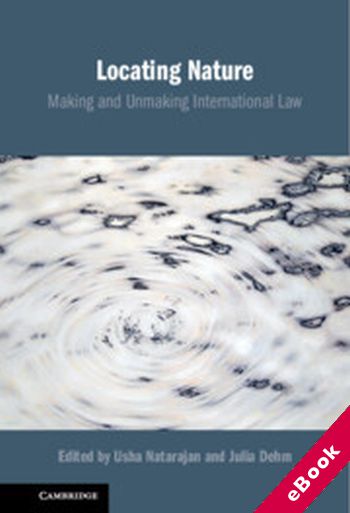
The device(s) you use to access the eBook content must be authorized with an Adobe ID before you download the product otherwise it will fail to register correctly.
For further information see https://www.wildy.com/ebook-formats
Once the order is confirmed an automated e-mail will be sent to you to allow you to download the eBook.
All eBooks are supplied firm sale and cannot be returned. If you believe there is a fault with your eBook then contact us on ebooks@wildy.com and we will help in resolving the issue. This does not affect your statutory rights.
For those troubled by environmental harm on a global scale and its deeply unequal effects, this book explains how international law structures ecological degradation and environmental injustice while claiming to protect the environment. It identifies how central legal concepts such as sovereignty, jurisdiction, territory, development, environment, labour and human rights make inaccurate and unsustainable assumptions about the natural world and systemically reproduce environmental degradation and injustice. To avert socioecological crises, we must not only unpack but radically rework our understandings of nature and its relationship with law. We propose more sustainable and equitable ways to remake law's relationship with nature by drawing on diverse disciplines and sociocultural traditions that have been marginalized within international law. Influenced by Third World Approaches to International Law (TWAIL), postcolonialism and decoloniality, and inspired by Indigenous knowledges, cosmology, mythology and storytelling, this book lays the groundwork for an epistemological shift in the way humans conceptualize the relationship between law and nature.